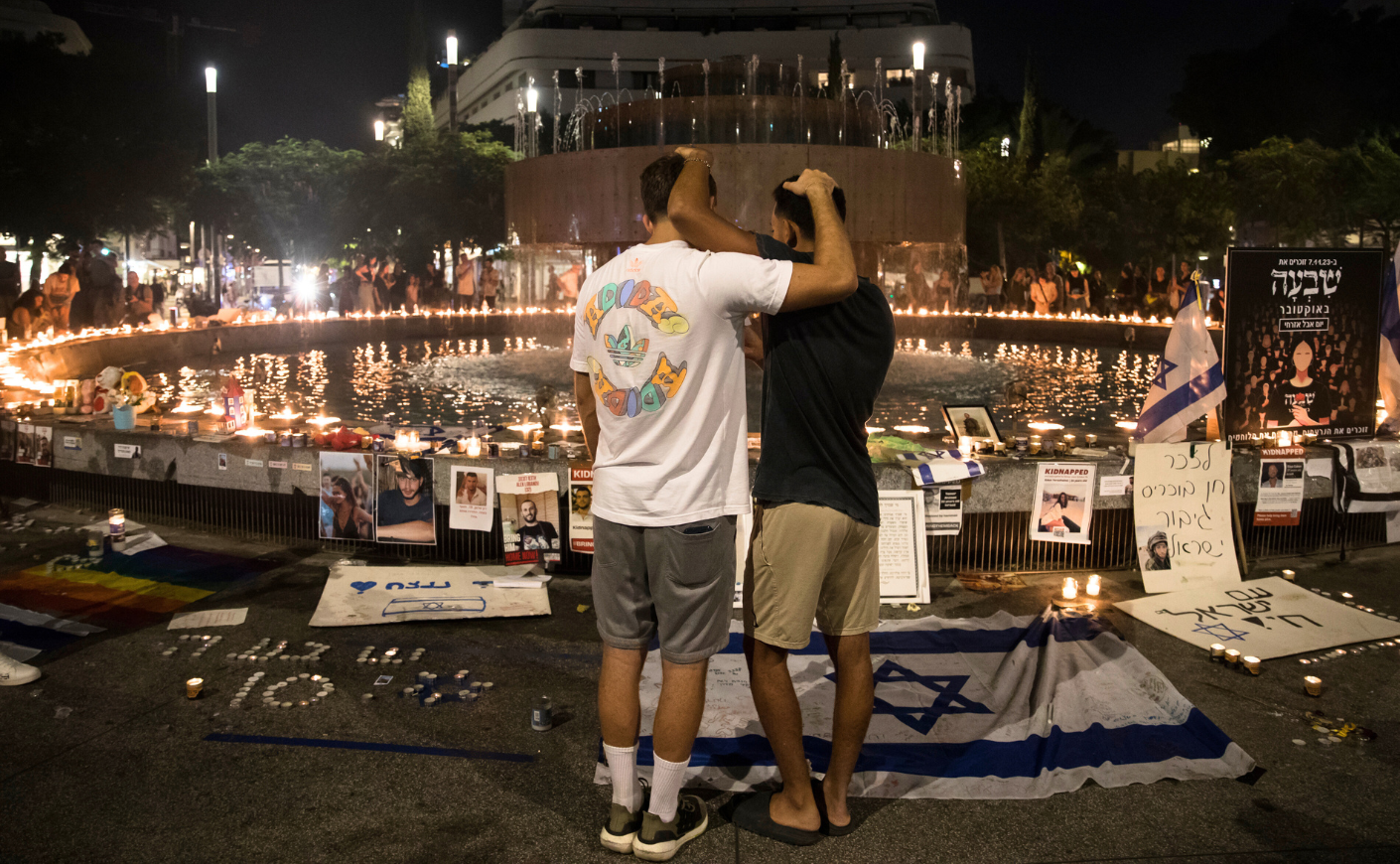It's been four weeks since Hamas's vicious attack on Israel, which shocked the world and kickstarted the the retaliatory campaign in Gaza by the Israeli government. As the war continues to intensify, global outrage is also increasing. At this point, it's hard to imagine a world where any of this (the war or the collective reaction) resolves itself in the near future.
To get a better understanding of this ongoing (and exceedingly complex) conflict, Katie marked the the one-month anniversary of the Oct. 7 attack by calling up Dennis Ross, an American diplomat and author with decades of experience in peace-brokering efforts in the Middle East, including service under the presidential administrations of Bill Clinton and George H.W. Bush.
Ross has written about how Israel's military history has impacted him both personally and professionally as a Jewish man who grew up in America. More recently, Ross authored an op-ed for The New York Times outlining the argument against a ceasefire in Gaza.
In conversation with Katie, Ross goes deep about this ongoing conflict, why he thinks Palestinians are winning the war of cultural opinion, and what a peaceful future in the region could possibly look like. Check out their full conversation below, followed by selected highlights.
Katie Couric: Why do you think the world is not showing stronger support for Israel?
Dennis Ross: That's really an important question, and it doesn't have a simple answer. We didn't see this kind of emotional response in Syria, a conflict that left 600,000 dead. But in a sense, the mobilization of the world is just different now. I think some of it relates to the fact that this conflict is in the Holy Land, and so it takes on more of a religious overtone, whether it should or not. Also, I think the Palestinians have been very good at creating a narrative over time of victimhood — which, by the way, is certainly true, but it seems to have penetrated the consciousness in a way that exceeds other conflicts.
What do you think Israel should be doing differently to change the narrative?
Ross: I think they have to release the videos [they have from Oct. 7]. I just returned from Saudi Arabia, and one of the things I heard frequently when I was interviewed on the Arabic stations was that the atrocities didn't take place. And first of all, the word "atrocities" doesn't capture what actually happened. These videos show not just torture of the most tedious form — they show the celebration of it by those who are carrying it out. It's the worst form of human depravity.
When I hear people talk about genocide in Gaza, this is not designed to be the extermination of a people. But what Hamas was doing was very clearly designed to do that. So if you don't expose it, you allow these false narratives to take on a life of their own.
Israeli troops are expected to enter Gaza City soon. How do you see this next stage unfolding?
Ross: It'll be very difficult...I spent a lot of time in Gaza City. I know what it looks like. It is densely populated — and even that description doesn't capture it. So this is a very difficult kind of warfare. But it's not as if the Israelis don't have experience dealing with it. What they've already done by encircling Gaza City is destroy a lot of the tunnels. Now, they're undoing the infrastructure. They are succeeding in eroding the Hamas military capability.
What about the hostages?
Ross: I'm familiar with past efforts, so I can assume that Israel is trying to work with Turkey, because they have a relationship with Hamas. They're probably also engaging with the Egyptians who actually have leverage because they're next door.
What does the future look like for Gaza?
Ross: The key is this: You need to create a different administration in Gaza. There needs to be a transitional authority there under an international umbrella. You can have Palestinian technocrats who manage the civil administration. You can bring in some Arabs to provide security. You can have a massive reconstruction program. You need to demonstrate very quickly for Gazans that when Hamas is not in control, they actually have a future.









